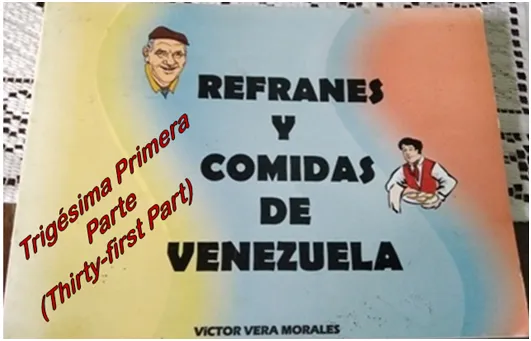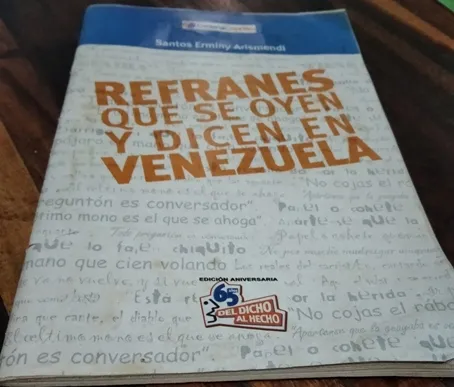

Dicho que se emplea para expresar cierto desdén y desprecio, es algo equivalente a decir que no vale la pena dedicar atención a algo o a alguien, ya que no la merecen. También podría transmitir un sentimiento de pérdida, de pesimismo y de indiferencia. Definitivamente, es un refrán despectivo.
Cuando las piedras están fijas en un sitio sin moverse, es más probable que les nazca moho u hongos; pero cuando la piedra rueda, se mueve, esto no ocurre. Con este dicho se intenta decir, que aquellas personas que son ágiles, activas y se mueven en pro de sus metas, jamás se quedarán abrumadas por la miseria (moho), mientras que los holgazanes sí.
Caracas es la capital de Venezuela, y ha sido así por más de un siglo, aún con los diversos cambios de Gobierno que han ocurrido a lo largo de este tiempo, ha sido inmutable su condición de capital de la nación. Con este refrán se intenta expresar, que hay situaciones que no se pueden cambiar, que es inútil intentar modificarlas, pues se mantendrán igual.
Un dicho que es muy cierto, porque generalmente en las poblaciones pequeñas, existen quizás menos ocupaciones y más tiempo libre para inmiscuirse en la vida de los demás, generando habladurías o chismes; en contraposición a la ciudad, en donde la propia dinámica urbana resta tiempo a sus habitantes para malgastarlo averiguando los asuntos ajenos o comentándolos.
Anteriormente, en tiempos pasados, el dar la palabra u ofrecer algo, era tan efectivo como si se firmase un documento escrito; por eso palabra dada, palabra cumplida, y es precisamente esto lo que trata de transmitir este refrán, que las promesas se deben cumplir, que no se puede echar atrás lo ya dicho. Quizás, en los tiempos actuales, esto no es tan frecuente.



A saying that is used to express a certain disdain and contempt, it is somewhat equivalent to saying that it is not worth devoting attention to something or someone, as they do not deserve it. It could also convey a feeling of loss, pessimism and indifference. It is definitely a derogatory saying.
When stones are fixed in one place without moving, they are more likely to grow mold or fungus; but when the stone rolls, moves, this does not happen. This saying is intended to mean that those people who are agile, active and moving towards their goals will never be overwhelmed by misery (mold), while the lazy ones will.
Caracas is the capital of Venezuela, and has been so for over a century, even with the various changes of government that have occurred throughout this time, has been unchanged its status as capital of the nation. With this saying we try to express that there are situations that cannot be changed, that it is useless to try to modify them, because they will remain the same.
A saying that is very true, because generally in small towns, there are perhaps fewer occupations and more free time to meddle in the lives of others, generating gossip or gossip; as opposed to the city, where the urban dynamics itself subtracts time to its inhabitants to waste it finding out the affairs of others or commenting on them.
Formerly, in times past, giving one's word or offering something, was as effective as signing a written document; hence word given, word kept, and this is precisely what this proverb is trying to convey, that promises must be kept, that one cannot go back on what has already been said. Perhaps, in today's times, this is not so frequent.

Dear readers, below I place the links of the first 30 posts, in case you want to read them:
Víctor Vera Morales. (Agosto 2004). Refranes y Comidas de Venezuela. Editado por el Instituto Municipal de Publicaciones de la Alcaldía de Caracas.
Santos Erminy Arismendi. (2006). Refranes que se oyen y dicen en Venezuela. Cadena Capriles, Caracas. Venezuela.
- Fotos de mi autoría, tomada con un teléfono REDMI 8A, intervenida con WordArt / Photos of my authorship, taken with a REDMI 8A telephone, intervened with WordArt.
- Los diseños incluidos en esta publicación, han sido elaborados por mi persona con la aplicación CANVA / The designs included in this publication has been made by me with the CANVA application.
In the event that it is required to use the content or images of this post and my other publications, I would be grateful if my authorship (Fabiola Martínez) was made and the corresponding link was cited. Thank you.


